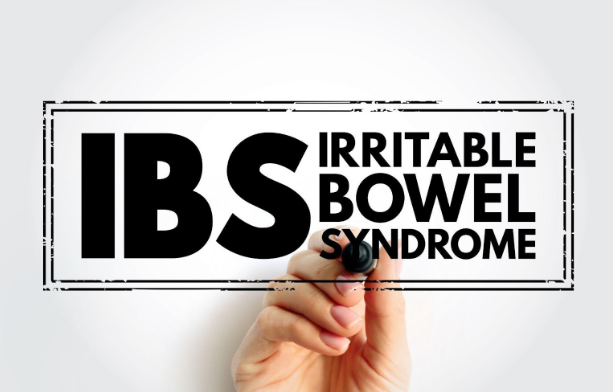How Gut Health Affects Irritable Bowel Syndrome: Causes, Symptoms, and How to Manage It

If you’ve been diagnosed with Irritable Bowel Syndrome (IBS), you’re not alone, and your gut health likely plays a central role in how it affects you. IBS is a chronic condition, distinct from occasional digestive discomfort, that directly impacts the health of your gastrointestinal system.
From the balance of your gut bacteria to how your digestive nerves respond to food, multiple factors within your gut impact how IBS develops and how it can be managed.
How Your Gut Health Influences IBS
Your gut contains trillions of microorganisms like bacteria, viruses, and fungi, collectively called the gut microbiome. This complex ecosystem supports digestion, regulates the immune system, and influences mood. When balanced, it protects the gut lining, improves nutrient absorption, and defends against harmful microbes.
In people with IBS, this balance is often disrupted, a condition known as dysbiosis. Changes in microbial diversity and composition can directly contribute to IBS symptoms in several ways:
- Increased Intestinal Permeability: Often referred to as “leaky gut,” this allows toxins and undigested particles to enter the bloodstream, provoking inflammation.
- Immune Activation: The body may respond to these intrusions with persistent, low-grade inflammation that aggravates IBS.
- Altered Gut Motility: Microbial imbalances can interfere with how the intestines contract, leading to diarrhea, constipation, or both.
What Causes IBS Related to Gut Health?
IBS doesn’t stem from a single cause but rather a combination of factors that affect your gut environment and overall health. This multifaceted nature means the treatment often requires a comprehensive, personalized approach.
Genetic Predisposition and Post-Infectious Triggers
Your family history can play a role, as genetics may increase susceptibility to IBS. Additionally, some individuals develop IBS after an infection such as gastroenteritis or food poisoning. This post-infectious IBS likely results from lasting changes in gut bacteria and immune system activation following the illness.
Dietary Influences and Gut Microbial Imbalance
Certain foods like high-fat meals, caffeine, alcohol, and fermentable carbohydrates (FODMAPs) can trigger or worsen symptoms. Alongside diet, shifts in the balance and diversity of gut bacteria, including conditions like Small Intestinal Bacterial Overgrowth (SIBO), can disrupt digestion and contribute to bloating, pain, and irregular bowel habits.
The Gut-Brain Connection and Stress
The gut and brain communicate closely via the gut-brain axis. Psychological factors such as stress, anxiety, and depression can alter gut motility and heighten sensitivity, amplifying IBS symptoms. Managing mental health is also a key part of comprehensive IBS care.
Hormonal Influences
This affects women more often, suggesting that hormonal fluctuations, such as those during menstrual cycles, pregnancy, or menopause, may impact gut function and symptom patterns. You can work with healthcare providers to develop a tailored approach aimed at restoring gut balance and improving your quality of life.
Recognizing IBS Symptoms and What You Should Look For
IBS can present with a wide range of symptoms, and its severity often fluctuates over time. Understanding these signs and their underlying causes can help you recognize patterns and seek timely medical advice.
Abdominal Discomfort or Cramping
This discomfort is linked to increased sensitivity in the gut’s nervous system and irregular muscle contractions. The pain often improves after a bowel movement, but it may return soon after, especially during times of stress or dietary changes. For many, this symptom interferes with work, sleep, and daily comfort.
Bloating and Visible Abdominal Distention
IBS often causes persistent bloating, even in the absence of a large meal. This bloating results from trapped gas produced when gut bacteria break down poorly absorbed carbohydrates.
People with IBS are more sensitive to this buildup, experiencing pressure and visible distention that can worsen throughout the day. This may be accompanied by excessive belching or flatulence, depending on how the body handles intestinal gas.
Irregular Bowel Movements
They are categorized by type: IBS-D (diarrhea-predominant), IBS-C (constipation-predominant), and IBS-M (mixed type). Diarrhea may be frequent and urgent, often occurring after meals or early in the morning, while constipation may involve infrequent stools, straining, and a sense of incomplete emptying.
In mixed cases, some patients may experience alternating periods of both, which adds complexity to symptom tracking and treatment.
Presence of Mucus in Stool
While not usually a sign of infection, this mucus reflects irritation in the colon’s lining. Its presence can signal changes in the intestinal environment, especially during symptom flares, and is more common in people who experience cramping or urgency.
Urgency and Incomplete Evacuation
A sudden urge to use the bathroom, which may strike without much warning, can cause anxiety, especially in public or unfamiliar settings. Even after a bowel movement, you may still feel as if your bowels haven’t been fully emptied.
This sensation is tied to disordered communication between the brain and the digestive tract and can lead to repeated trips to the bathroom with little relief.
Other symptoms may include fatigue, poor sleep, nausea, and even urinary frequency or pelvic discomfort. While these issues are not exclusive to IBS, they tend to be more common among those with chronic gut disturbances and may worsen during flare-ups.
Why Medical Evaluation Is Essential for Accurate Diagnosis
Disorders like inflammatory bowel disease (IBD), celiac disease, diverticulitis, or colon cancer can all mimic IBS in their early stages. That’s why it’s critical to consult a gastroenterologist if you experience red-flag symptoms such as weight loss, anemia, rectal bleeding, or persistent pain that doesn’t respond to typical IBS treatments.
How Your Doctors Diagnose IBS
A thorough evaluation helps rule out more serious conditions and allows for a more tailored approach to symptom management. Your doctor combines clinical criteria with specific tests such as:
Using the Rome IV Criteria
Doctors diagnose irritable bowel syndrome (IBS) using the Rome IV criteria, a symptom-based standard developed by gastrointestinal specialists. To meet these criteria, you must experience recurrent abdominal pain at least once a week for the past three months, with pain linked to changes in stool frequency, form, or relief after bowel movements. Symptoms should have begun at least six months prior.
These criteria help distinguish IBS from other conditions like inflammatory bowel disease, or colorectal cancer, which typically involve more serious underlying issues. If your symptoms fit the Rome IV guidelines and no warning signs are present, your doctor can confidently diagnose IBS without extensive testing.
Recognizing Red Flag Symptoms
Although many IBS cases are diagnosed based on symptoms alone, doctors carefully watch for red flag signs that could signal a more serious condition. These warning signs include unexplained weight loss, rectal bleeding or black stools, iron-deficiency anemia, persistent vomiting, and a family history of colorectal cancer or inflammatory bowel disease (IBD).
When any of these symptoms are present, they raise concern for potentially serious underlying issues that require further evaluation. In such cases, doctors usually recommend additional diagnostic tests, such as blood work, imaging, or endoscopy.
Using Targeted Tests
Your doctor may recommend several key tests that provide important insights into underlying infections, inflammation, or imbalances that may require tailored treatment beyond standard IBS management. This includes:
- Comprehensive Stool Analysis: This test evaluates the balance of gut bacteria, identifies harmful pathogens such as parasites or harmful bacteria, and measures inflammation markers like calprotectin and lactoferrin. It helps detect infections or inflammatory processes that could mimic IBS symptoms.
- Blood Tests: These assess for conditions like celiac disease, anemia, infections, and systemic inflammation. Identifying these diseases are crucial, as its treatment differs significantly from IBS.
- Breath Testing for Small Intestinal Bacterial Overgrowth (SIBO): By measuring hydrogen and methane gases produced after you consume specific sugars, this test detects bacterial overgrowth in the small intestine, a condition that can cause symptoms very similar to IBS.
- C-Reactive Protein (CRP) or Fecal Calprotectin: These markers help differentiate IBS from inflammatory bowel diseases such as Crohn’s disease or ulcerative colitis by identifying active inflammation in the digestive tract.
Endoscopic Procedures
If your symptoms are severe, long-lasting, or include warning signs, your doctor may recommend endoscopic procedures to explore potential underlying conditions: While not typically required for a routine IBS diagnosis, these procedures are essential when there’s concern for more serious gastrointestinal disorders that could present with similar symptoms.
- Colonoscopy: Provides a clear view of the colon and allows for biopsies to check for conditions like inflammatory bowel disease, colorectal cancer, or microscopic colitis.
- Upper Endoscopy (EGD): Used when upper GI symptoms are present, this test examines the esophagus, stomach, and upper small intestine to detect issues such as ulcers, or gastritis.
Specialized Motility and Functional Tests
If your symptoms are hard to manage with standard treatments, your doctor may suggest motility tests to check how well your digestive system is working. The SmartPill or wireless motility capsule measures how long it takes food to move through your stomach and intestines.
Anorectal manometry tests the strength and nerve response of the muscles in your rectum and anus, which can help diagnose chronic constipation. These tests give a clearer picture of your gut’s function so treatment can be more targeted.
What We Do for You Beyond the Diagnosis
Once your diagnosis is clear, we focus on building a personalized management plan that fits your lifestyle. You’ll work closely with our team to uncover the factors that trigger your symptoms,whether it’s diet, stress, hormones, or a microbial imbalance, and create a strategy that brings real, sustainable relief.
Patient-Centered, Multiphase IBS Care Plan
We take the time to understand the patterns, triggers, and lifestyle factors contributing to your symptoms. Based on this, we offer personalized diet advice, including checking for FODMAP sensitivity and food intolerances to manage your triggers.
Your medications are reviewed to make sure they aren’t causing problems, and we adjust them if needed. Treatment is matched to your IBS type using medicines like antispasmodics, bile acid binders, or probiotics. We provide regular follow-ups to monitor your progress and update your plan as needed.
In-House Testing and Rapid Referrals
We streamline your care with in-house testing where possible, including breath tests for SIBO, stool studies, and lab work. If additional support is needed, we coordinate directly with dietitians, behavioral therapists, or other specialists to ensure you get comprehensive care without delays.
If you want to explore expert care and innovative treatment options tailored specifically for your digestive health needs,
schedule a consultation with our gastroenterology specialists at
Northlake Gastroenterology today!.
More Blogs












